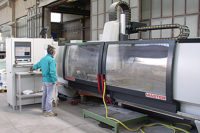Does it do what I need today? Figuring out what you need and want is the first step in evaluating software. It is important to find one with a good match between the software's strengths and your list of essential features.
Will it do what I need in the future? If you're anticipating growth, you'll want to make sure that any software you buy today will meet your needs two years from now. Finding software that is flexible, scalable and configurable is essential if your business is changing.
Can I try it out? Without “kicking the tires,†you may not be able to figure out if a particular software application can handle your business.
Who are the existing users? Ask for a list of customer references and talk to them. You'll get an idea of how other people are using the software, where its strengths lie, and how well it matches what you're doing.
Can I configure it to match my business? When you buy off-the-shelf software, you should expect that some features will work for you right out of the box, but other features will require some configuration.
How many people can use the system? How many users can access the system at once? If you have many users accessing the system, does performance suffer? How much more does it cost to have multiple users?
Where is my data located? It might be running on the Internet as a service or might be installed on computers in your office. Does the software store the data in an open format, such as SQL Server or another standard database, or is it stored in a proprietary format?
What about future upgrades? Is the software vendor committed to improving the software? How often are upgrades available? How much does it cost to get the upgrades?
What are other hidden costs? The biggest cost will be your time and money for training and converting from your existing system. It may be necessary to purchase new hardware as well. Even if you save a lot of money in the long term from switching to a new system, there will be a short-term cost in making the transition.
Evaluating business software means thinking about your own needs before you start looking for solutions. Which software you use will have long-term impact on how you run your business, so it is important that you find the right fit.

